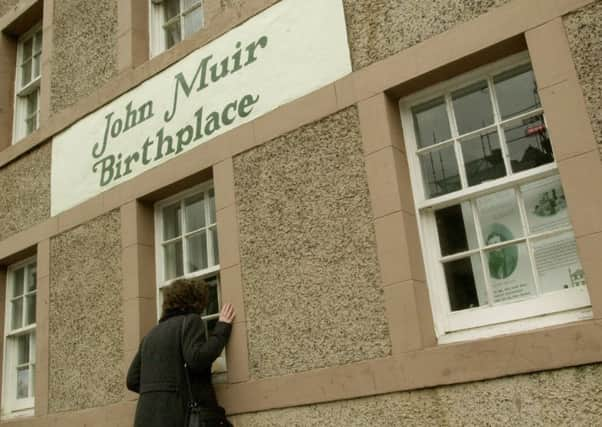Chris Townsend: Love of wild places more important than ever


Today is John Muir Day, a special day for lovers of nature and wild places. It’s now 102 years since Muir died yet his legacy is more important than ever. From the rocky coast at Dunbar where he was born in 1838 and lived until he was eleven to the vast wilderness areas of the USA where he spent much of his adult life, Muir was always in touch with the natural world.
In the USA he’s known as the ‘father of National Parks’ for his campaigns to protect Yosemite, King’s Canyon and other spectacular areas of the Sierra Nevada mountains in California. He also founded the Sierra Club, still the USA’s leading environmental organisation. Here in Scotland the John Muir Trust carries out similar work; we also have John Muir’s Birthplace in Dunbar and the increasingly popular John Muir Way across the Central Belt.
Advertisement
Hide AdAdvertisement
Hide AdOnce little known in the country of his birth, Muir becomes more honoured and remembered with every year that passes.
Muir was an explorer, mountaineer and naturalist as well as a campaigner. He lived the outdoor life, walking a thousand miles from Indianapolis to the Gulf of Mexico by the ‘wildest, leafiest, and least trodden way’; climbing many mountains in the High Sierra, often making the first recorded ascents; and showing with his detailed field studies that glaciers had carved the landscape of the Sierra Nevada.
However it’s his articles and books that have the most significance, writings that led to the creation of Yosemite National Park in 1890 and which still inspire us today.
Appropriately enough, I first discovered John Muir in the Sierra Nevada when I walked the Pacific Crest Trail many, many years ago when few knew about him in Scotland. The Pacific Crest Trail runs through the Sierra Nevada and there I walked on the John Muir Trail in the John Muir Wilderness and wondered who this man was who’d given his name to such a beautiful and spectacular place.
Once I found out I began reading his words for myself, starting with The Mountains of California, and was impressed with his passionate devotion to wild places and his use of the power of words to praise and defend the places he loved.
Muir was not someone who thought wild places should be solely for the landscape and the plants and animals that lived there. He didn’t want to exclude people. Indeed he thought such places were essential for humanity and he encouraged people to visit them.
His books are as much about inspiring people to go and see the wilds as they are about conserving them. He didn’t see any conflict between these two, rather he though it essential they went together.
Two key quotes reveal this. “Everybody needs beauty as well as bread, places to play in and pray in, where nature may heal and give strength to body and soul alike,” he wrote in The Yosemite. And in Our National Parks, which was written to encourage visitors, he said: “Thousands of tired, nerve-shaken, over-civilized people are beginning to find out that going to the mountains is going home; that wildness is a necessity; and that mountain parks and reservations are useful not only as fountains of timber and irrigating rivers, but as fountains of life.”
Advertisement
Hide AdAdvertisement
Hide AdToday as our world shrinks under a burgeoning population and expanding industry, and nature comes under more and more pressure, Muir’s words are as important as ever. We are part of nature, whether we realise it or not, and we need nature.
In recent years study after study has shown that exposure to nature, whether by standing looking or by venturing deep into it, has a powerful and positive effect on our wellbeing. When they are asked, visitors to the Highlands generally say that the landscape is the main reason they are there. Nature is important to them even if they never venture far from roads and towns. The huge popularity of nature and wildlife programmes on television further shows this. Muir would have understood.
This need for nature and wildness means that Muir’s words in defence of them are still relevant and should be heeded. They always will be.
As he said in a speech ‘the battle we have fought, and are still fighting for the forests is a part of the eternal conflict between right and wrong, and we cannot expect to see the end of it. ... So we must count on watching and striving for these trees, and should always be glad to find anything so surely good and noble to strive for.’
• To mark John Muir Day this month, Scottish Natural Heritage and partners will be organising a series events and activities around the John Muir Way from 16-24 April, which you can find about at http://www.visiteastlothian.org/john_muir_day.asp, while the John Muir Trust is offering half price membership to new recruits over the same period.
• Cairngorms-based explorer Chris Townsend is an elected board member of the John Muir Trust, He has written more than 20 books about his adventures in the mountains, including the newly published Out There: A Voice from the Wild (Sandstone Press).